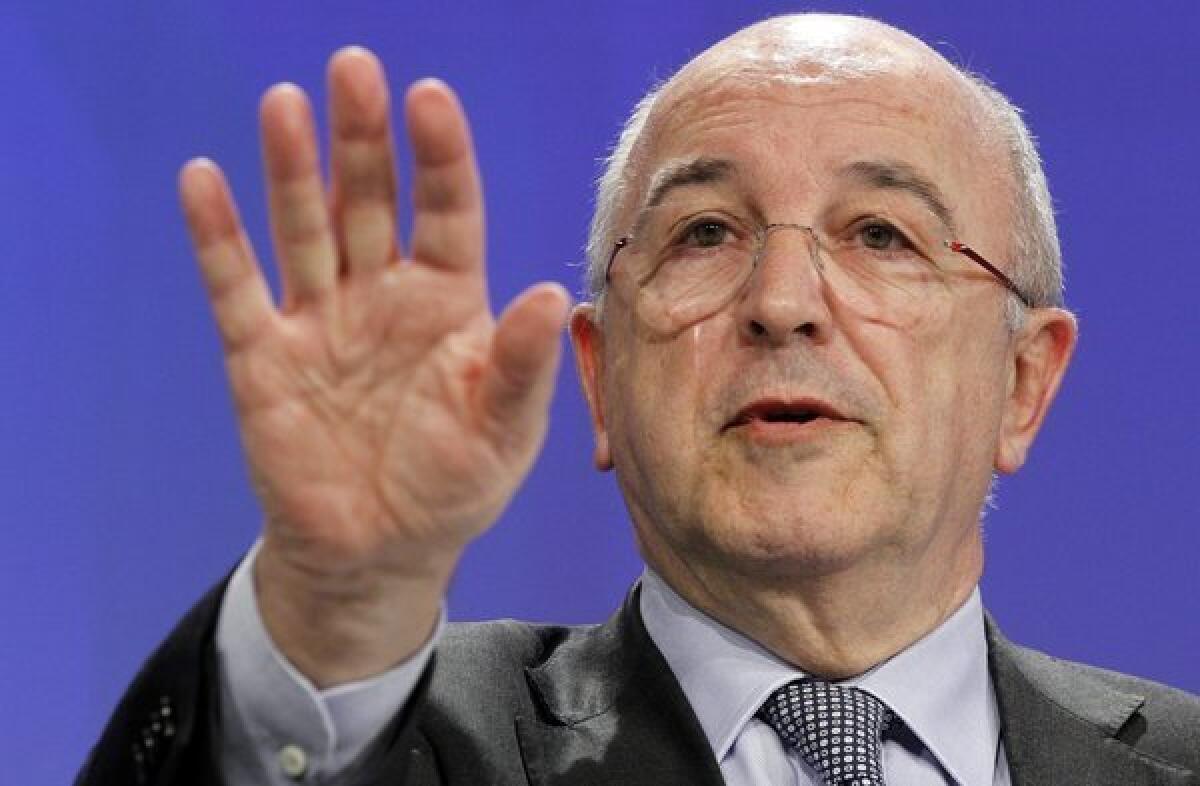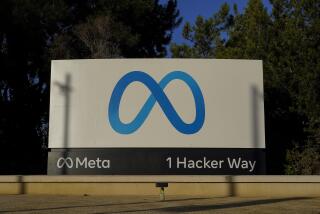EU slaps seven companies with heftiest ‘textbook cartel’ fine ever

The European Union slapped seven companies with nearly $2 billion in fines Wednesday over alleged schemes to fix prices for expensive tubes used in computer monitors and televisions, its heftiest fine ever against what it called “textbook cartels.”
EU antitrust watchdogs said electronics companies such as Philips, LG Electronics and Panasonic colluded at meetings across Europe and Asia to control the market for cathode ray tubes, hashing out prices and production plans in secret. Some were dubbed “green meetings” because golf would follow. The acts allegedly took place between 1996 and 2006.
The companies knew they were breaking the law, said the European Commission, the EU executive body that deals with antitrust cases and other matters. It pointed to a meeting document that warned, “Everybody is requested to keep it secret as it would be serious damage if it is open to customers of European Commission.”
The alleged cartels “feature all the worst kinds of anticompetitive behavior that are strictly forbidden to companies doing business in Europe,” said Joaquin Almunia, the commission vice president who oversees competition policy, in a Wednesday statement.
Before plasma screens and other alternatives were introduced, cathode ray tubes made up at least half of the price of a television or computer screen, an indication of the “serious harm” that fixing prices ultimately caused for European consumers, Almunia said.
The seven companies face individual fines ranging from $37 million to upwards of $400 million, as well as three sizable fines imposed jointly on several of the companies. The other companies named by the commission were Samsung SDI, Technicolor, Toshiba and MTPD, which is now a Panasonic subsidiary.
“We regret any association with this type of behavior,” Philips Chief Executive Officer Frans van Houten said in a statement Wednesday.
The company said it had fully cooperated with the investigation and had been handed a lower fine as a result. Nonetheless, Philips argued the fine was excessive because it had divested itself of its cathode ray tube business more than a decade ago. The company said it would appeal the decision.
LG Electronics told the Associated Press it would wait to study the decision before commenting.
The EU investigation was launched more than five years ago with surprise inspections. An eighth company involved in the alleged cartels, Chunghwa, was not fined because it first revealed the cartels to the EU, the antitrust officials said. It would have faced more than $22 million in fines if it had not been granted immunity, according to the commission.
ALSO:
Street battles erupt between Egypt’s rival political camps
New rankings underscore corruption concerns in Greece, Egypt
Typhoon in Philippines leaves nearly 300 dead, hundreds missing
More to Read
Sign up for Essential California
The most important California stories and recommendations in your inbox every morning.
You may occasionally receive promotional content from the Los Angeles Times.










